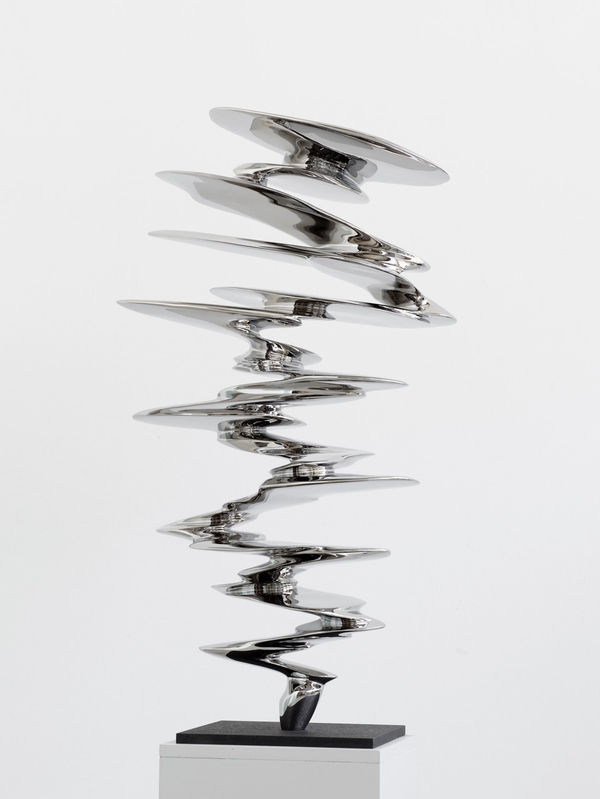Tony Cragg British, b. 1949
Anthony Douglas Cragg, known as Tony Cragg, is a British sculptor born on April 9, 1949, in Liverpool, England. He is regarded as one of the most important contemporary sculptors since the late 20th century.
After working for a time as a laboratory technician, he turned to art and studied at the Gloucestershire College of Art and Design in Cheltenham (1969–1973), then at the prestigious Royal College of Art in London (1973–1977).
His early works are characterized by the use of found and recycled materials—plastic, wood, metal, and everyday objects—which he assembles into colorful and symbolic compositions. These accumulations reflect both a critique of industrial society and a deep fascination with the transformation of matter.
During the 1980s, Tony Cragg gained international recognition. His work evolved toward more abstract and organic forms, using materials such as bronze, stone, wood, and stainless steel. His sculptures often evoke natural shapes, growing organisms, or flowing energy, as if matter itself contained an inner vitality.
Since the late 1970s, Cragg has lived in Wuppertal, Germany, where he became a professor at the Düsseldorf Academy of Fine Arts, influencing a new generation of sculptors. In 2008, he founded the Waldfrieden Sculpture Park, a large sculpture park that showcases his works alongside those of other artists.
Winner of numerous awards, including the prestigious Turner Prize in 1988, Tony Cragg represented the United Kingdom at the Venice Biennale that same year. His works are now part of major museum collections worldwide.
Throughout his career, Cragg has sought to reveal the expressive power of matter, showing how sculpture can give form to the invisible, to the forces, emotions, and structures that shape our world.












